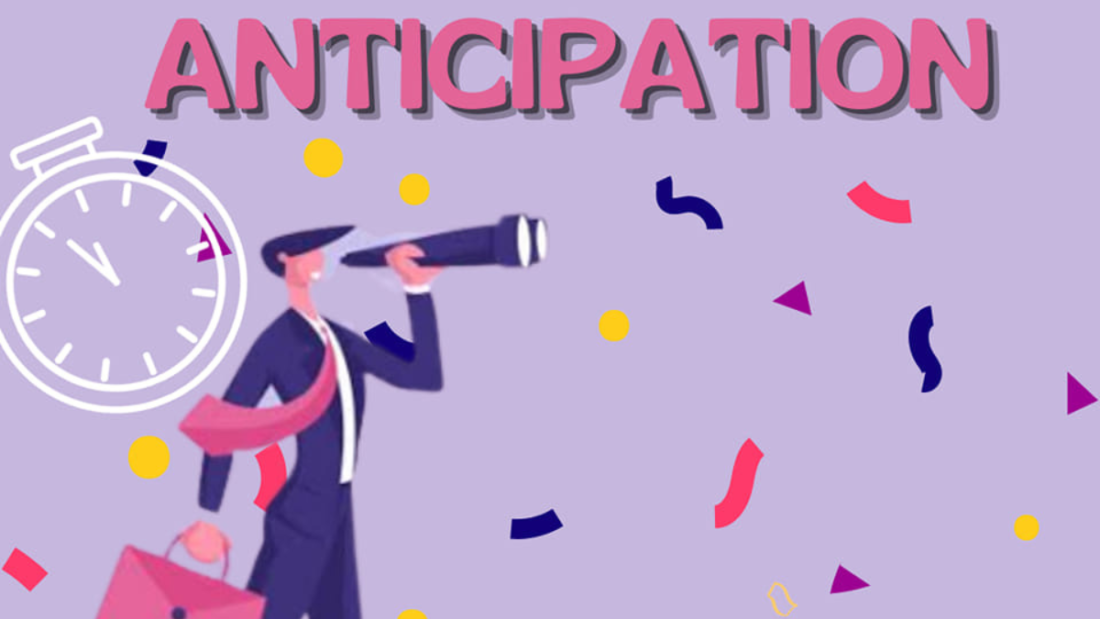Robert Plutchik listed anticipation as one of the eight basic emotions in his theory on emotions. It is a sense or feeling that arises when looking to a future event situation or experience that one is wanting or hoping for. Anticipation of a positive, long-awaited event coming to fruition can generate feeling enthusiastic, excited, and hopeful, and is largely associated with pleasure and longing as well. However, if the wait time is long or, the waited restarted (like a delay in the arrival of something or someone important) there may also be associated emotions of anxiety, irritation, or frustration associated with the wait for the situation to occur.
Sometimes, however, anticipation may also be linked to dread or hopelessness, when the upcoming situation is perceived as a negative one, or when a person is unable to cope with the uncertainty about the event. For instance, the anticipation of a person who has stage fright when they have to speak or make a presentation at a scheduled future date.
Anticipation may be expressed physically as well; some people seem to smile uncontrollably during this period, while others seem ill or sick.
Sometimes anticipation can build up to the point of keeping a person hooked on a story or series, wanting to know what happens next in the face of cliffhangers. In most cases, the payoff of the event ends the anticipation.
Reminder: When we anticipate something, we tend to experience the future moment and the associated feelings as if it is occurring in the present moment. This means that with anticipation, we open ourselves up to both pleasure and pain. When we anticipate something “good” we may feel the pleasure we perceive to be associated with the positive event, but when we anticipate something “negative”, we may feel the discomfort or stress perceived to be associated with it. This makes it important to be able to notice and manage the feeling of anticipation.
When did you last notice this feeling of anticipation come in?
 Cart is empty
Cart is empty 


